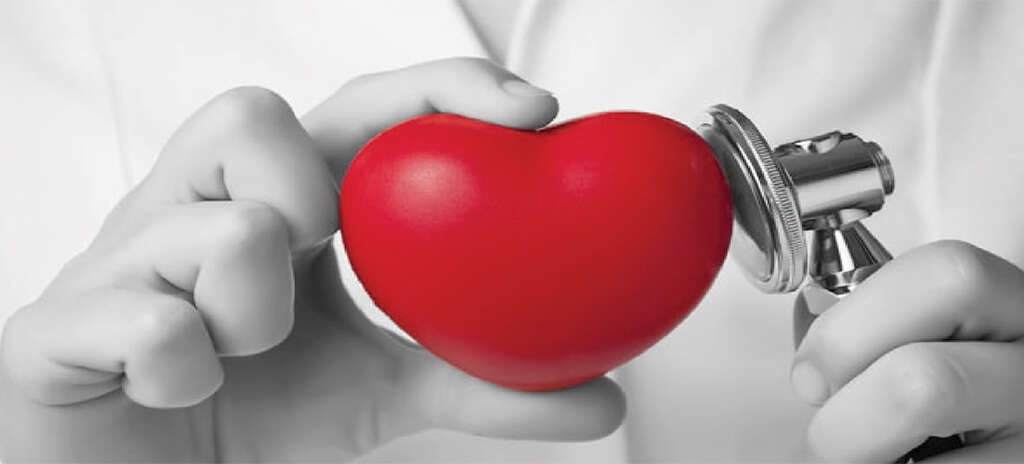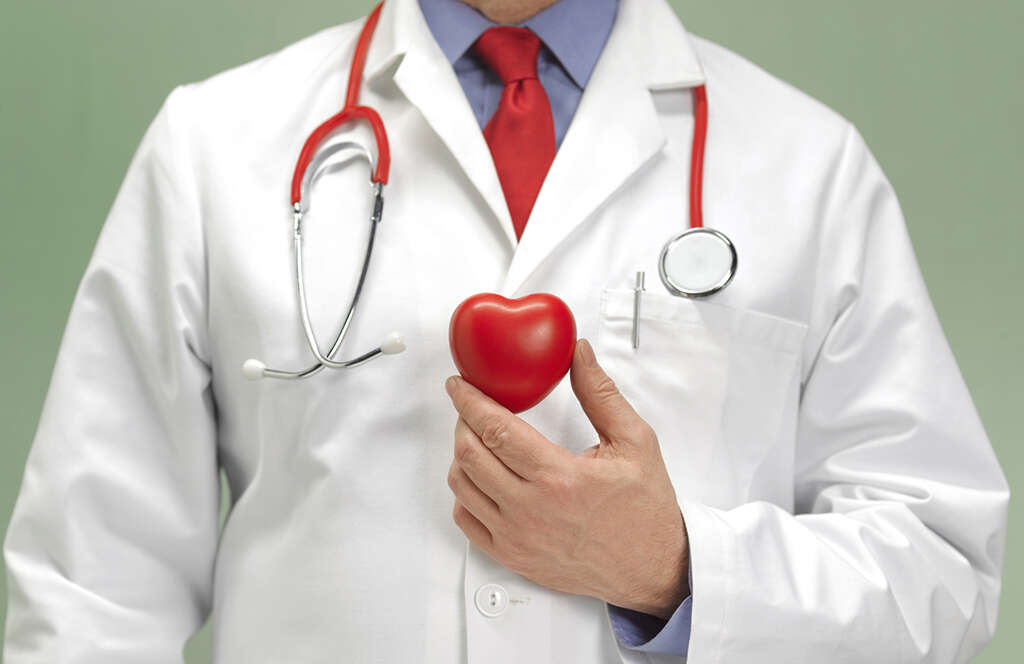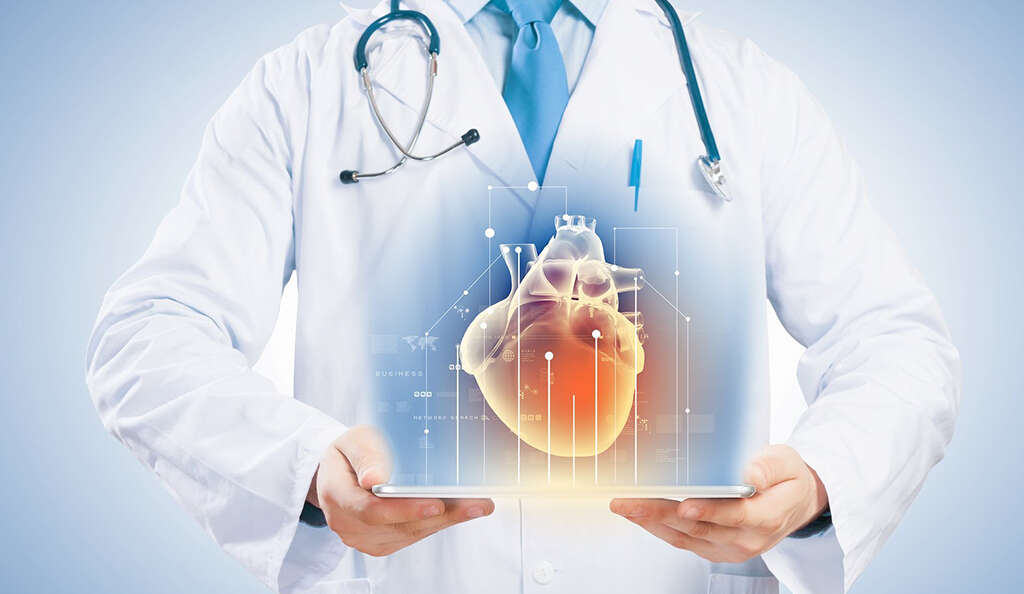10 Symptoms of Congestive Heart Failure
A heart attack and heart failure are very similar events, and often directly connected, but physically they are two different things. A heart attack is caused when the flow of blood to the heart muscles is blocked, while heart failure is when the heart becomes less effective at pumping blood. When heart failure is left untreated, it will often develop into congestive heart failure which can be very dangerous 1https://www.medicinenet.com/congestive_heart_failure_chf_overview/article.htm#congestive_heart_failure_facts.
The good news is that heart failure can be treated, especially if caught in time. It is a chronic condition, meaning it is never actually cured, but modern medicine can still help the patient considerably. Regardless, it is a condition that is to be taken very seriously. Here’s a look at some of the most common symptoms.

Symptom #1: Fatigue
As the heart is pumping blood, it is supplying all parts of the body with the nutrients and energy that it needs. When this flow of blood is restricted, so is the supply of nutrition, causing the body to prioritize the supply of nutrients to the essential organs.
As a result of the prioritization of blood flow, the less important parts of the body are essentially deprived of the nutrition they require to operate. This makes us feel fatigued even when we have not been taking part in strenuous activities. Such fatigue is a symptom of heart failure, and when combined with other symptoms, is a reason to seek further medical advice.

Symptom #2: Feet Swelling
There are numerous fluids flowing throughout our bodies, performing various functions. These fluids are often circulated around the body with help of the heart and are cleaned up when necessary by the kidneys and liver.
When a heart is not performing at full effectiveness, however, these fluids are not circulated or eliminated as they should be. This can cause a buildup of excess fluids in the body and gravity causes them to pool at the feet and lower legs. This swelling can be very noticeable and can even make it difficult to wear shoes and socks.

Symptom #3: Shortness of Breath
Our hearts and lungs are closely linked, as they are both responsible for ensuring that there is sufficient oxygen flowing through our bodies. Therefore, when something goes wrong with the heart, the lungs can also be affected.
Shortness of breath is a common symptom among people with heart failure. When the heart is not pumping as effectively as it should be, it causes blood to become backed up in the lungs, making it harder to breathe. In addition, the insufficient blood flow also means that there is not enough oxygen circulating, contributing to breathlessness.

Symptom #4: Lack of Appetite
Circulation of the blood is important for the effective functioning of numerous body parts and the stomach is no exception. The stomach requires oxygen to help it metabolize our food and also needs strong circulation in order to take away metabolized nutrients. Without this flow, the stomach can begin to function less effectively and we will have less desire to eat.
Blood flow to the stomach is decreased as a result of heart failure, which leads not only to a decreased appetite, but also to indigestion and nausea. Eating less food can also lead to a decrease in overall nutrition, potentially exasperating already existing health problems. It is important for people with heart failure to try and eat enough to gain nutrition, regardless of a lack of appetite.

Symptom #5: Coughing
A strong blood flow helps to ensure that all fluids in the body are distributed as they should be. An insufficient flow means that fluids can get left behind instead of eliminated. When fluid build-up occurs in the lungs, it can lead to coughing and wheezing as the lungs struggle to cope.
Heart failure can lead to a condition known as acute pulmonary edema, which is an excessive build-up of fluids in the lungs. This causes coughing, which can sometimes lead to the problem being mistaken for something else, such as bronchitis or asthma. Coughing, combined with other symptoms, can be the result of something more dangerous like heart failure and requires medical attention.

Symptom #6: Gradually Deteriorating Condition
As with many illnesses, the symptoms of heart failure will gradually worsen as the condition develops. The symptoms may be barely noticeable at first, with just a mild notion of being out of breath, but they will likely develop into something more severe as the heart deteriorates.
Because the symptoms of heart failure can start off quite mild and worsen gradually, it might be some time before a person seeks treatment. The faster treatment is received, the better the odds are for improving the symptoms and your overall health. If you do find yourself out of breath for no particular reason, or you are experiencing other symptoms, go for a checkup with a medical professional.

Symptom #7: Increased Heart Rate
When the heart is not pumping as efficiently as it should, there is not enough blood circulating around the body. This leads to a shortage of oxygen and nutrients, so the body tries to compensate. One way the body does this is to increase the rate at which the heart beats in an attempt to circulate more oxygen and nutrients to the essential organs.
While it is normal to experience a faster heartbeat at times, such as after exercise, people with heart failure find it harder to feed their body with the oxygen and nutrients it needs. As a result, they often experience an increased heart rate even while resting as the body attempts to spread more oxygen as nutrients. These symptoms of increased heart beats while resting should be taken seriously and medical attention should be sought.

Symptom #8: Sudden Symptom Onset
Although the symptoms of heart failure are likely to worsen gradually over time, this is not always the case. Sometimes, the symptoms can develop very suddenly, potentially causing significant concern. A sudden onset of heart failure will be very similar to a heart attack and can be very serious indeed, even fatal.
Regardless of the suspected cause of the sudden onset of symptoms, whether it be a heart attack, heart failure or something else, waste no time at all in seeking emergency medical attention. Congestive heart failure can be deadly so it is something that is never to be taken lightly.

Symptom #9: Bloating
When your heart is operating at peak efficiency, it is effectively pumping various fluids around the body. The heart’s engine will help the rest of the body to pick up fluids from one place and transport them to where they are needed.
However, with congestive heart failure fluids may not always be collected by the blood flow as they should be. This causes fluids to accumulate in the abdomen as well as elsewhere in the body. The pooling up of fluids in the abdomen is known as ascites. Heart failure can also lead to bloating complications of the liver, known as hepatomegaly. Any of these symptoms should receive medical attention as soon as possible.

Symptom #10: Dramatic Improvement with Treatment
Modern medicine is able to treat a wide range of conditions, some more effectively than others. Other methods of treatment can take time to have an effect and improvements may not always be noticeable, while some treatments can be quickly effective indeed.
The good news is that treatments for heart failure can improve the patient’s condition immensely. In fact, the quick resolution of symptoms after treatment is a strong indicator that the diagnosis of heart failure was correct. Not only can a person’s life be extended with an accurate diagnosis and treatment, but their quality of life can also be improved.












